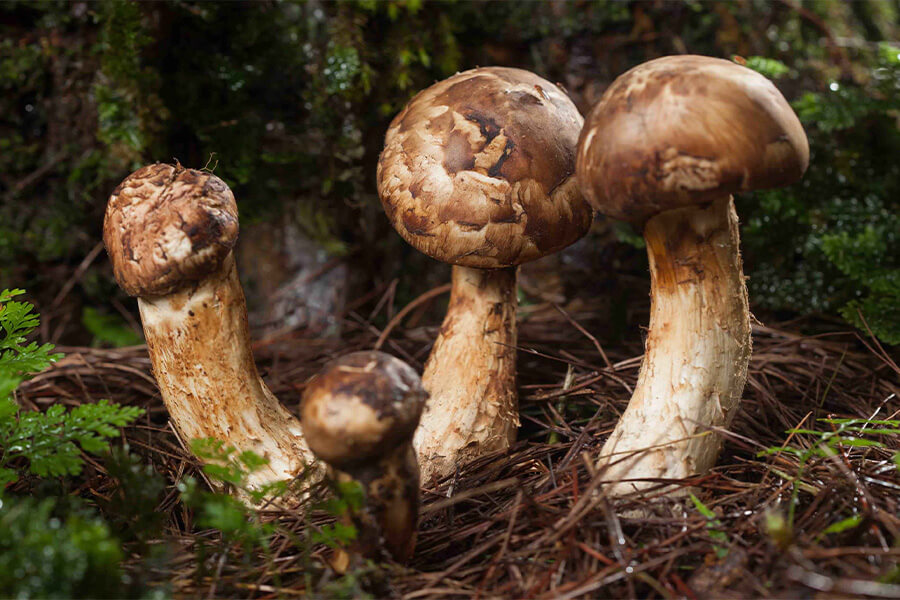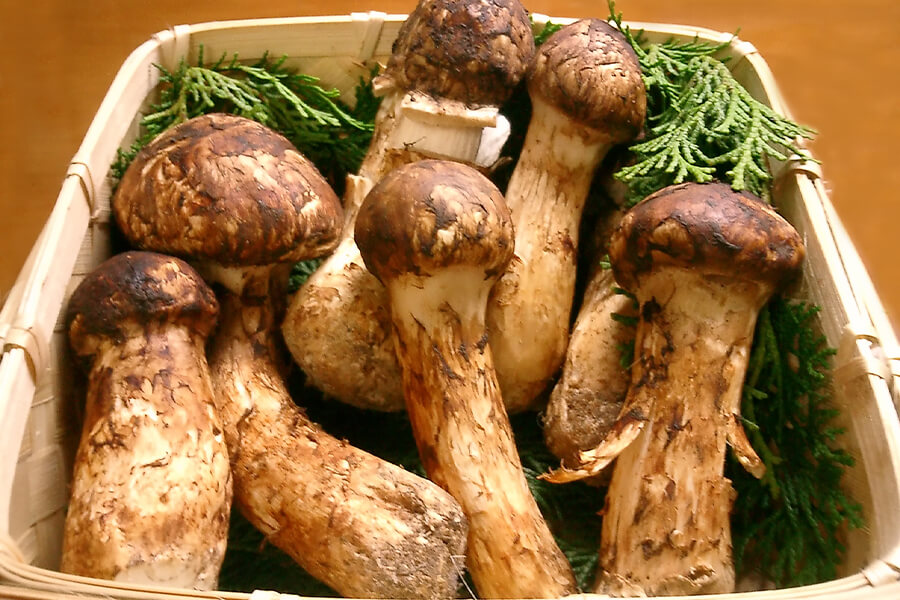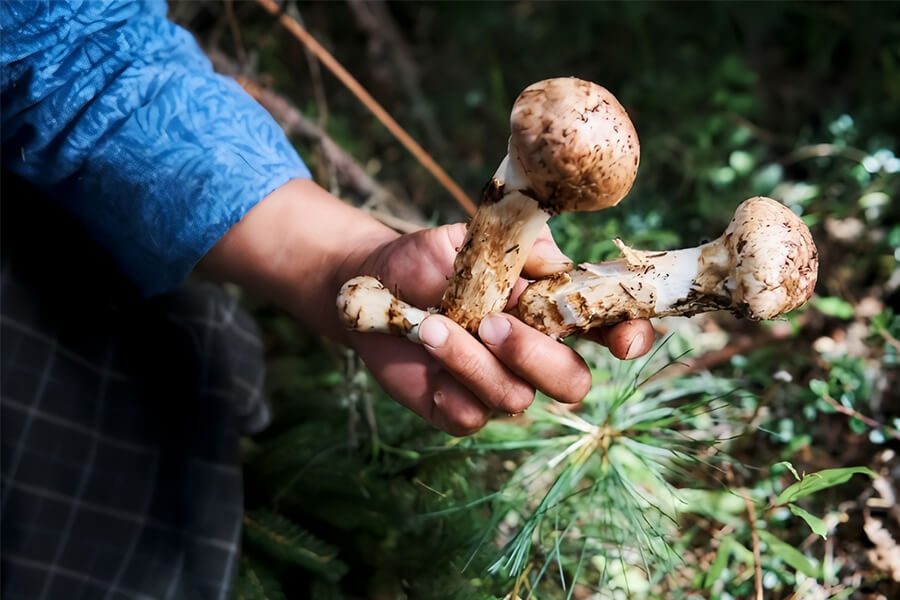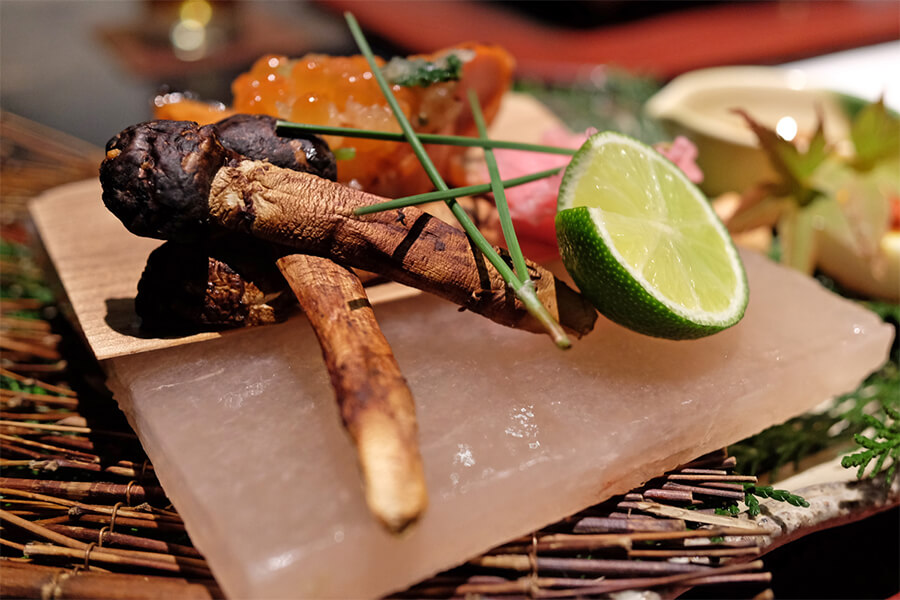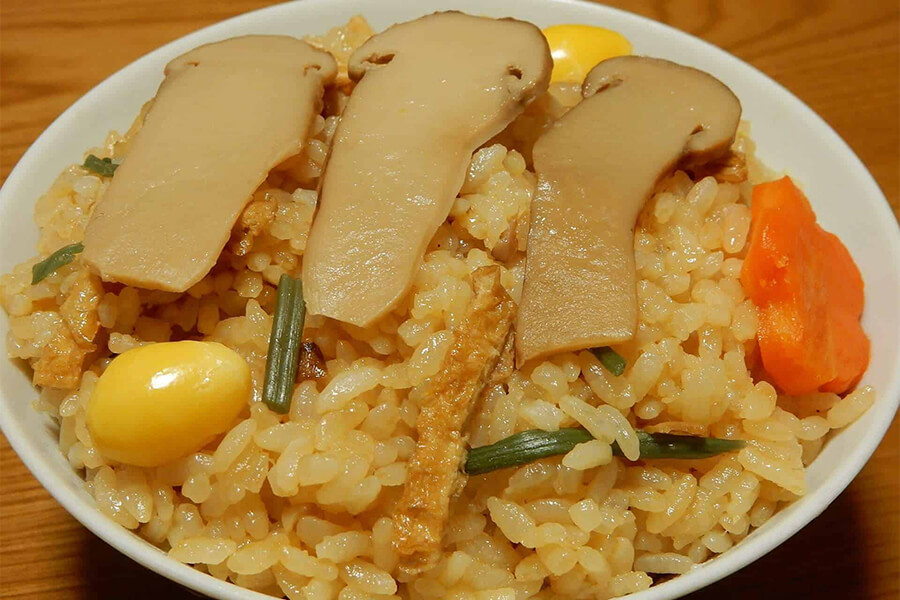In the misty forests of Bhutan’s highlands, hidden beneath pine needles and moss, grows one of the most prized culinary treasures in the world – the Matsutake mushroom. Known for its rich aroma, earthy flavor, and rarity, this wild mushroom fetches extraordinary prices in global markets, often rivaling the cost of fine truffles. Beyond its economic value, the Matsutake mushroom holds deep cultural and ecological significance in Bhutan, connecting the country’s people to the rhythms of nature and the blessings of the Himalayan landscape.
For travelers seeking authentic Bhutan tours and travels, the Matsutake season offers a unique opportunity to explore Bhutan’s pristine forests, witness the traditional mushroom harvest, and experience how this rare delicacy shapes rural life and local cuisine. It’s a journey that reveals not just the taste of the Himalayas, but the deep respect Bhutanese people hold for their land and its natural bounty.
The Origins of Matsutake Mushroom
The Matsutake mushroom (Tricholoma matsutake) is native to the forests of East Asia, particularly Japan, Korea, China, and the Himalayan regions of Bhutan and Nepal. In Japan, where it is most celebrated, the Matsutake has been cherished for over a thousand years, symbolizing prosperity and purity. However, due to deforestation and the decline of its natural habitats, Japan now imports much of its supply - with Bhutan emerging as one of the most important exporters of Matsutake mushrooms.
In Bhutan, the Matsutake mushroom grows wild in pine forests between 2,500 to 3,800 meters above sea level, especially in central and eastern districts such as Bumthang, Wangdue Phodrang, and Trongsa. Unlike cultivated mushrooms, mushroom matsutake cannot be farmed artificially; it forms a symbiotic relationship with the roots of pine trees, thriving only in pristine, undisturbed environments. This dependency makes the mushroom exceptionally rare - and its discovery a joyful moment for rural communities.
For Bhutanese villagers, the arrival of the Matsutake mushroom season is both an economic opportunity and a cultural event. Locals trek deep into the forest to carefully harvest these mushrooms, ensuring the delicate balance of the ecosystem remains intact. For many families, selling fresh Matsutake mushrooms provides vital income, supporting education, healthcare, and daily living expenses.
When to Harvest Matsutake Mushrooms?
The harvesting season for Matsutake mushrooms in Bhutan typically runs from mid-July to late September, coinciding with the monsoon rains that nurture the forest floor. During this period, the scent of pine and soil fills the mountain air - a sign that nature’s rare treasure is ready to be found.
Harvesting Matsutake mushrooms is both an art and a tradition. Experienced gatherers rise early in the morning, walking silently through the woods, guided by instinct and years of knowledge passed down through generations. The mushrooms are usually found beneath the soil, often hidden by fallen pine needles. Harvesters use wooden sticks to gently lift them, taking care not to damage the mycelium - the underground network that ensures future growth of mushroom matsutake.
Timing is everything. Young Matsutake mushrooms, with their caps still closed, are considered the most valuable due to their strong aroma and firm texture. Once the cap opens, the mushroom loses some of its fragrance. Traders then sort the mushrooms by size and quality, and the finest specimens are packed and air-shipped to Japan, where they command prices of up to USD 1,000 per kilogram.
For travelers visiting Bhutan during the Matsutake mushroom season, witnessing this harvest offers a rare glimpse into a traditional practice that harmonizes economy, ecology, and spirituality. Some local communities even allow visitors to join guided mushroom foraging tours, providing hands-on insight into this fascinating Bhutanese tradition.
How to Cook Matsutake Mushrooms Like a Local?
Cooking the Matsutake mushroom is about simplicity - allowing its natural aroma and flavor to shine through. In Bhutan, locals often prepare these mushrooms with minimal seasoning, letting the earthy fragrance take center stage. Whether grilled, steamed, or cooked in a soothing soup, each preparation reflects the purity of Bhutanese cuisine and reverence for local ingredients.
1. Matsutake Soup (Tshampa or Shamu Datshi)
One of the most beloved dishes during the mushroom season is Matsutake soup, made with slices of fresh mushrooms, spring onions, and a hint of Bhutanese cheese (datshi). The soup is simmered slowly, creating a clear broth with a deep umami flavor. A dash of butter or chili adds warmth - perfect for the cool Himalayan evenings.
2. Grilled Matsutake
For purists, grilling is the best way to experience the true essence of Matsutake mushrooms. Thick slices are brushed with oil or butter and grilled over charcoal until lightly golden. The smoky aroma enhances the mushroom’s natural spiciness, and a sprinkle of salt or a squeeze of lemon completes the dish.
3. Matsutake Rice (Matsutake Bap)
A Bhutanese twist on a Japanese favorite, Matsutake rice combines fragrant red rice with thinly sliced mushrooms and herbs. As it cooks, the Matsutake mushroom releases its signature scent - a pine-like perfume that fills the kitchen. This wholesome dish pairs beautifully with ema datshi (chili and cheese stew) or simple vegetable sides.
Matsutake Mushroom Benefits for Health and Longevity
Beyond its culinary prestige, the Matsutake mushroom is valued for its nutritional and medicinal properties. For centuries, traditional healers in Bhutan and across Asia have used it as a natural remedy to boost vitality and longevity. Modern science continues to uncover evidence supporting its health benefits.
- Nutrient-Rich and Low in Calories: The Matsutake mushroom is packed with essential nutrients such as B vitamins, copper, potassium, and dietary fiber. It’s also low in calories and fat, making it an excellent choice for healthy, balanced meals.
- Boosts Immunity and Reduces Inflammation: Compounds in Matsutake mushrooms, including beta-glucans and phenolic antioxidants, support the immune system and help reduce inflammation.
- Supports Digestive and Gut Health: Its prebiotic properties nourish beneficial gut bacteria, promoting a healthy digestive system and nutrient absorption.
- Potential Anti-Cancer and Anti-Viral Effects: Studies suggest that extracts from Matsutake mushrooms may exhibit anti-tumor and anti-viral properties.
- Enhances Mental Clarity and Energy: The pine-like aroma of the Matsutake mushroom has grounding and uplifting effects on the mind.
The Vibrant Matsutake Mushroom Festival of Bhutan
Every August, when Bhutan’s pine forests come alive with the fresh scent of mushrooms, the Ura Valley in Bumthang hosts the joyful Matsutake Mushroom Festival. This two-day event celebrates the bounty of the Matsutake mushroom while promoting sustainable tourism and supporting local communities.
The festival is a vibrant blend of culture, cuisine, and conservation. Locals and travelers gather to enjoy traditional music and dance, taste freshly prepared dishes made from Matsutake mushrooms, and join guided mushroom-picking tours through the surrounding forests.
Food stalls serve steaming bowls of Matsutake soup, spicy stir-fried mushrooms, and rice dishes infused with the mushroom’s aroma. Artisans showcase handicrafts, while farmers proudly display their best harvests - showing how this humble fungus has transformed rural lives.
The Matsutake Mushroom Festival reflects Bhutan’s philosophy of Gross National Happiness - balancing economic growth with environmental preservation and cultural integrity. By honoring the Matsutake mushroom, Bhutan reminds the world that true prosperity lies in harmony with nature.

